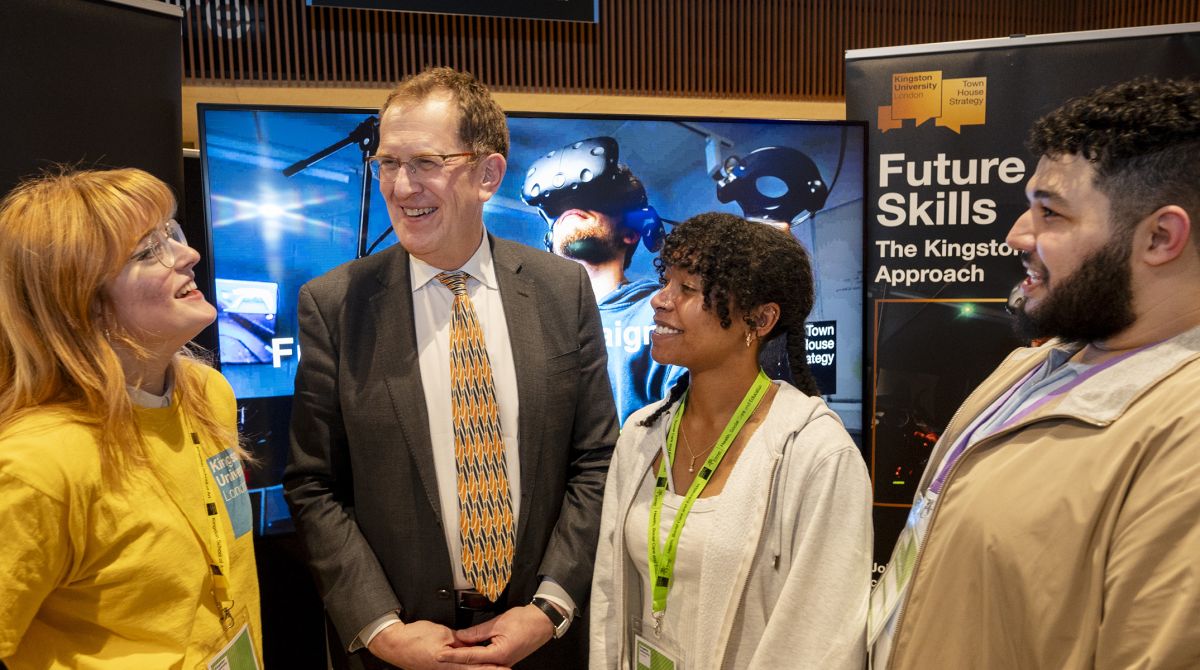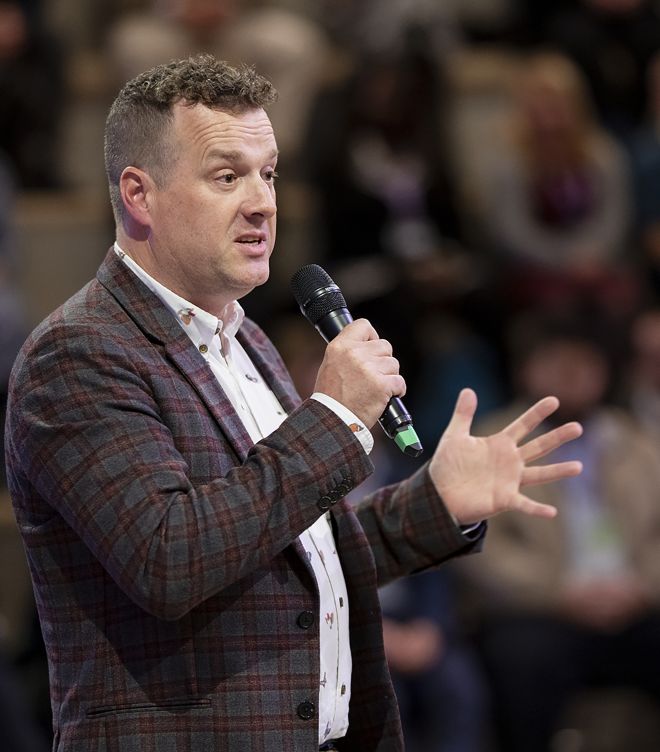University celebrates achievements of its transformative Future Skills programme with students and staff at Town House event
Posted Monday 13 May 2024

The achievements of Kingston University's sector-leading Future Skills work to prepare graduates for career success have been celebrated during a special all-staff event at Town House.
Staff from across the institution came together to hear from students, module tutors and senior leaders about how the innovative new model of education was transforming teaching across the institution. The skills most valued by employers are being embedded across every year of every course informed by the research of the University's award-winning Future Skills campaign.
The event was opened by Vice-Chancellor Professor Steven Spier, who outlined the progress being made through the University's visionary Town House Strategy.
"We want to be sought after, we want people to want to work with us and hear what we have to say," he said. ""Businesses have told us what they need from graduates and the skills they weren't getting. We're putting those Future Skills into every year of every programme."
The award of TEF Gold in all categories last autumn recognised Kingston's commitment to delivering excellent learning and teaching, Professor Spier said. "We've really started to deliver the University that we describe in the Strategy. It allows us to remember why we want to work in Higher Education – educating young people for what will be a complicated and challenging life ahead for them, alongside generating and disseminating knowledge."
The importance of Future Skills in preparing graduates for a world increasingly dominated by artificial intelligence (AI) was highlighted by guest speaker Anthony York, Group People Director of IP Group, during the event.

"AI probably will change the world of employment but what doesn't change is the human traits that make people successful," he said. "Being able to demonstrate an ability to learn, adapt, an understanding of communication, exceptional problem-solving skills, is a genuine competitive advantage, for graduates in particular but I'd argue for everyone. The embedding of Future Skills in the curriculum is not a nice-to-have – it's going to be critical."
With life expectancies increasing and today's young people increasingly likely to live to up to 100, there would be fundamental changes to the world of work, Mr York, who also gave an address at the launch of the University's most recent Future Skills campaign report at the House of Commons, said. "People are going to have to rethink retirement, be in and out of education, learning on the job, having two or maybe three careers. What will enable that is the early embedding of Future Skills and competencies that allow them to stay relevant."
From this autumn, more than 70 per cent of undergraduates will be studying Future Skills as a core part of their degree, through Navigate modules in first-year courses and Explore modules second-year courses. Students and staff shared their experiences of Future Skills in an interactive session led by Pro Vice-Chancellor John Craig and Student Development and Graduate Success Director Ali Orr.
Amber Joseph, second year biochemistry student spoke about how it had helped her reflect on the skills she most wanted to develop before graduation. "Navigate was a big wake-up call of what I want to show after University – what I want an employer in front of me to see when they consider me for a job. That's pushed me now to do things like this talk in front of people, develop skills like public speaking."
Meanwhile second year computer science student Abdurrahman Alsharef highlighted the butterfly effect-like impact Future Skills has had on his mindset. "It has been genuinely life-changing. I'm exploring these philosophical questions about what my goals are in life. It really is expanding my horizons and will be what makes Kingston alumni sought after."
- Find out more about our sector leading Future Skills programme.